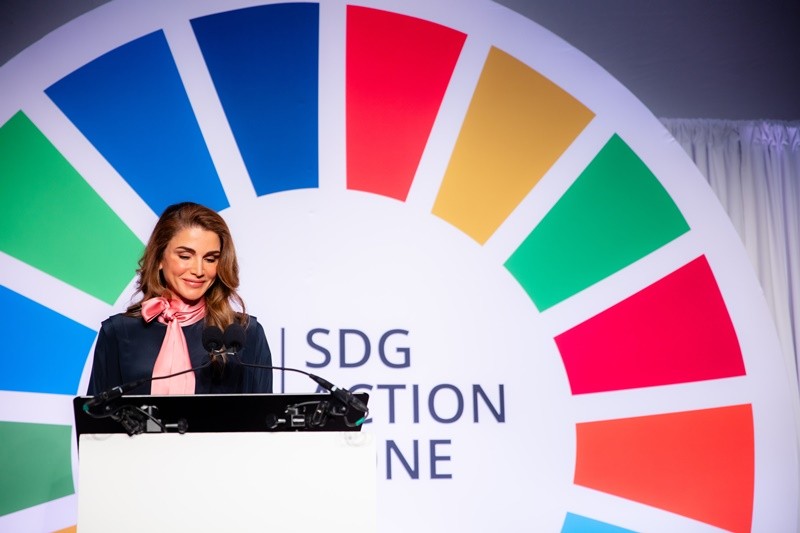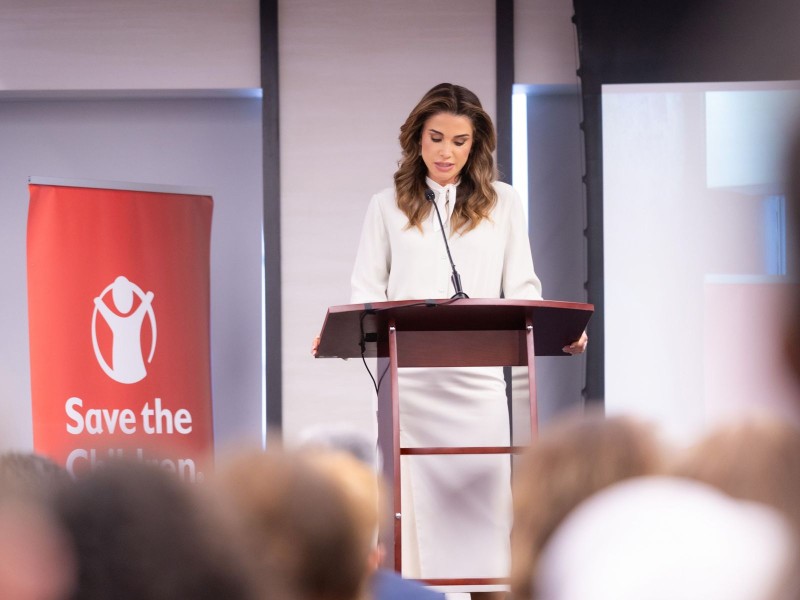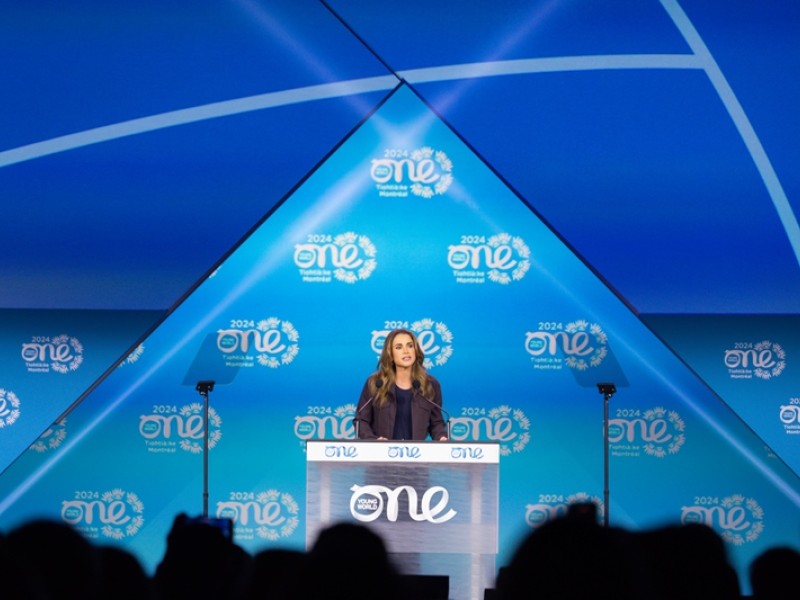Queen Rania’s Remarks at the ‘Advancing the Global Goals with AI’ Session - NY, USA

Thank you, Amina, for your words and for all you do. And thank you to Ruth and to Google for bringing us together.
I’m sure everyone in this room uses Google every day. But in my country, Jordan, Google has also become a part of – and a partner for – our future.
A few years ago, we had a dream of creating a platform for K to 12 online learning in Arabic… Google stepped forward with funding and technical volunteers to get us from dream to reality.
Today, that educational platform, Edraak, is a great example of how advanced technology can help us close seemingly impossible gaps.
Technology’s power to serve society is the topic that joins us today.
Everything we’re going to hear this afternoon begins with a remarkable fact…which is that humans, in the span of just a few years, have taught machines how to see.
Experts call this technology “computer vision.” And every day, in laboratories, observatories, and operating rooms, it reveals more of the universe to us.
The distant past, the far future, the darkest corners of the heavens, and even the deepest reaches of our minds.
The U.N. Sustainable Development Goals are, in many ways, a test of our vision.
They ask us to see every person on Earth – all 7.7 billion of us – as equally deserving of justice, healthcare, education, and opportunity… and they challenge us to create a future where these rights are made real by 2030.
Artificial intelligence could help us with that task. It could reveal hidden barriers to progress, and help us knock them down.
But before we turn computer vision toward our most human problems…
Before we ask artificial intelligence to help us understand poverty, malnutrition, gender inequality, or climate injustice…
We must recognize another important fact. Which is that our seeing machines have some worrying blind spots.
Maybe you’ve read about the AI that analysed years of legal data and concluded that white defendants were more deserving of mercy in a court of law.
Or the chatbot that read Twitter and adopted the language of misogyny.
Or the facial recognition systems that are literally less capable of seeing a dark-skinned person as human.
The tragic fact is that these AI-driven blind spots mirror our own. Machines are looking closely at the society we’ve built, and they’re envisioning a future that looks a lot like our past.
The good news is that humans can provide a corrective lens. We can create machines that not only recognize inequalities but help us to correct them.
The first step is ensuring that the teams building AI reflect all of us – men and women of every color, creed, and continent.
We have a long way to go. Men still outnumber women 10 to one in some of the most important AI research labs. The field is still mostly white, mostly male, and mostly Western.
But I hope this panel shows us what change looks like.
These scientists, technologists, and advocates come from different corners of the globe. They bring a range of different backgrounds and beliefs to their work.
But they are united in their commitment to ensuring that AI benefits all of humanity – and accelerates our progress toward achieving the Global Goals.
So thank you, Ruth and Amina, for bringing us together, and for the meaningful conversation we have in store.
مواضيع مختارة
موقع جلالة الملكة رانيا العبدالله الرسمي
هذا الموقع الإلكتروني لا يدعم متصفحات الإنترنت القديمة. الرجاء تحديث متصفح الإنترنت إلى نسخة أحدث من إنترنت إكسبلورر 9
متصفح الإنترنت الذي تستخدمه قديم. لتحسين مستوى الأمان عند تصفح مواقع الإنترنت و مشاهدتها بالشكل الصحيح و بفعالية افضل قم بتحديث متصفح الإنترنت الخاص بك



